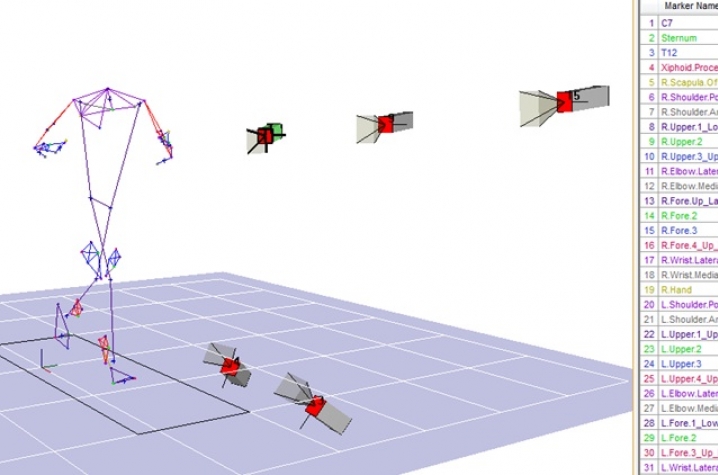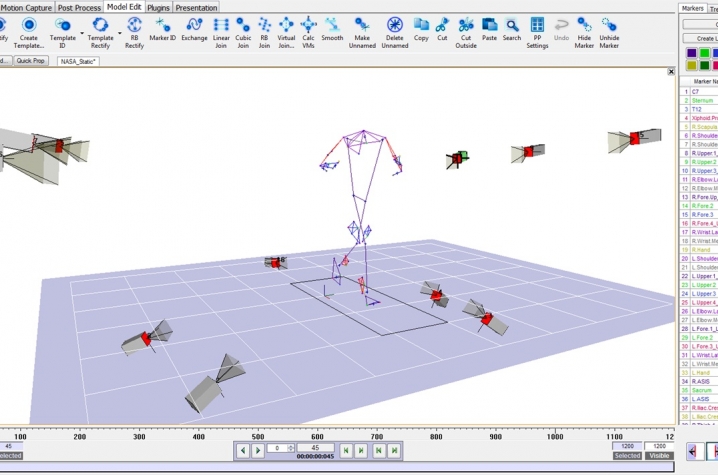UK Kinesiology and Health Promotion Offers Unique Opportunities for an Increasing Student Enrollment
LEXINGTON, Ky. (Nov. 30, 2011) — At the University of Kentucky, sports are a strong passion for many students, but not just at Rupp Arena or Commonwealth Stadium.
The Department of Kinesiology and Health Promotion (KHP) in the UK College of Education offers one of the fastest growing degree programs not only in the college, but in the nation. According to an article from Inside Higher Ed, more students are pursuing degrees in the area of kinesiology due to "its social relevance, its relation to the obesity epidemic, and the growing societal importance of sports and athletics."
At UK, enrollment in KHP program has increased 96 percent since 2008, and students graduating from the program go into a large number of medical and other clinical fields such as medicine, physical therapy, physician's assistant, training, pharmacy, pharmaceutical sales and medical equipment sales.
"We have 721 KHP majors in our department," said Melody Noland, chair of the department and professor of health education. "About 16 percent are teacher education students and 84 percent are exercise science students. Of those exercise science students, 317 have expressed as a goal some sort of health career. And they can acquire all their prerequisites for these health programs through our exercise science tract."
One of those students, Justin Rubin, spent much of his time in high school as a member of an all-star cheering team. So when it came down to choosing a college, he knew that he wanted to come to the University of Kentucky. He also knew that he wanted to go to medical school, but once he arrived in Lexington, choosing a major was not as clear.
"In high school, we were told that you had to major in a science, like biology or chemistry," said Rubin, a dermatology resident originally from Miami. "When I got to UK, some of my fellow cheerleaders told me I should speak to Dr. (Steve) Parker about the exercise science program. I did, and I learned that exercise science gave me another option."
"This is the best program for students who really want to know how the body works," said Parker, professor in KHP and associate dean for student and academic services in the College of Education. "They learn how the body actually works and how they can apply what they've learned in the classroom to real-life situations. We also have a practicum and internship program that allows us to send students all over the country to physical therapy clinics, hospitals and other medical facilities."
Though it may seem unusual for pre-health profession students to study in the College of Education, KHP offers a wide array of opportunities through the bachelor of science degree program. Along with the requisite KHP courses, students are required to take the appropriate science (biology, chemistry and physics) courses required for entrance to their desired professional programs. However, through courses in KHP, students receive a much greater scope of understanding processes and functioning than those science courses can give.
"After graduating with my degree in exercise science and entering UK's physical therapy program, I quickly realized that I was vastly more prepared for the program than my cohorts," said Stephen Karam, a 2006 graduate. "The courses in the KHP program allowed me to quickly grasp many of the complex concepts taught in physical therapy school. I would suggest that anyone remotely interested in the health professions strongly consider majoring in KHP."
Rubin adds, "With my degree in exercise science, I was uniquely equipped with a holistic understanding of the human body as well as interpersonal communication skills that surpassed many traditional pre-medical students."
At the undergraduate level, KHP offers a number of courses in exercise physiology and biomechanics such as Biomechanics of Human Movement, Physiology of Exercise, Introduction to Exercise Testing and Measurement, Psychology of Sport and Physical Activity, Nutrition and Physical Fitness, among others. At the graduate level, courses such as Exercise Stress Testing and Prescription, Sport Biomechanics and Advanced Exercise Physiology are offered. In addition, students have a number of research opportunities in the Biodynamics, PEP, Body Comp Core and Exercise Physiology Laboratories to investigate problems related to childhood obesity, cardiovascular effects of low gravity during space flight, cardiovascular disease in firefighters, and ACL injuries in athletes, to name a few. Faculty and students have conducted research with co-investigators from NASA and members of Olympic and professional sports teams.
The KHP program also works collaboratively and conducts research with a number of colleges and programs at UK, including the College of Health Sciences Department of Rehabilitational Sciences' physical therapy and athletic training programs, the College of Medicine's Department of Orthopedic Surgery and Sports Medicine, and the College of Engineering's Biomedical Engineering program.
For more information about the program, please visit the College of Education Department of Kinesiology and Health Promotion's website at education.uky.edu/KHP/.
MEDIA CONTACT: Jenny Wells, (859) 257-5343; Jenny.Wells@uky.edu






